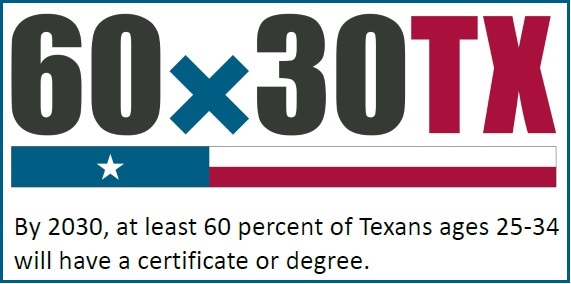No matter what your answer might be, you have lots and lots of options.
Texas offers dozens of colleges and universities, from small to large, public to private, two year to four year. A good place to start is with some basic questions.
1) Are you going to college because:
- Your friends are going?
- Your parents expect you to?
- You think college can help you find a path to your future?
- You want to learn technical skills for getting a job?
- You want to become a teacher, computer specialist, lawyer, doctor or other professional?
- You want to make money and be more successful?
2) What are you looking for in a college?
- A two-year community or technical college?
- A four-year college?
- A university?
3) What else do you need to consider?
- Were your grades in high school lower than those required by a university?
- Do you need developmental courses?
- Do you need to work full-time and attend classes at night?
- Do you need a certificate, an associate's degree, a bachelor's degree or higher to achieve your goals in life?
- Is prestige important to you?
- What do you want most out of college?
4) Okay, one last question. Do you want:
- Small classes?
- Large classes?
- Specific degree programs or courses?
- Low tuition and fees?
- Scholarships or merit aid?
- The ability to transfer credit?
Answering these questions will help shape your choice of a college or university.
Check out Admissions Info to get started looking at the college and university admissions policies and standards. There's information on Automatic Admissions(Top10% Rule), Academic Fresh Start, Residency, and a whole lot more...
One thing to keep in mind: You’ll see a large range in tuition and fees among Texas colleges. On average, tuition and fees for a 15-hour semester range from $820 at a public community college to $8,689 at an independent or private college or university.
But you should never, ever let the cost keep you from applying. You and your family usually won't have to pay the full amount out-of-pocket. Many schools offer tuition discounts or scholarships and grants to offset the price.
If you apply, there’s money available to help pay for college. Schools offer aid, there are many scholarships available, and state or federal financial aid programs can help you cover college costs. (A quick reminder: Applying for financial aid and applying for admission to a Texas college are two separate processes.)
Before you make a final decision on a college, wait until you've applied for and received both a letter of acceptance and an offer of financial aid, including local scholarships and grants.
When you have all the information in front of you, you can compare the actual out-of-pocket cost of each school. All it takes is a little time and maybe a few application fees to check out all your options. And most colleges will drop the application fees for students who can't afford them.



